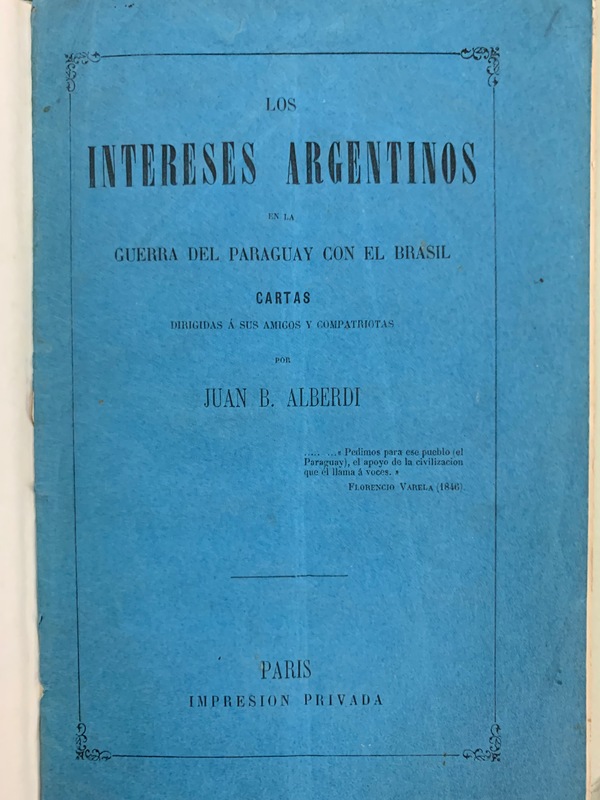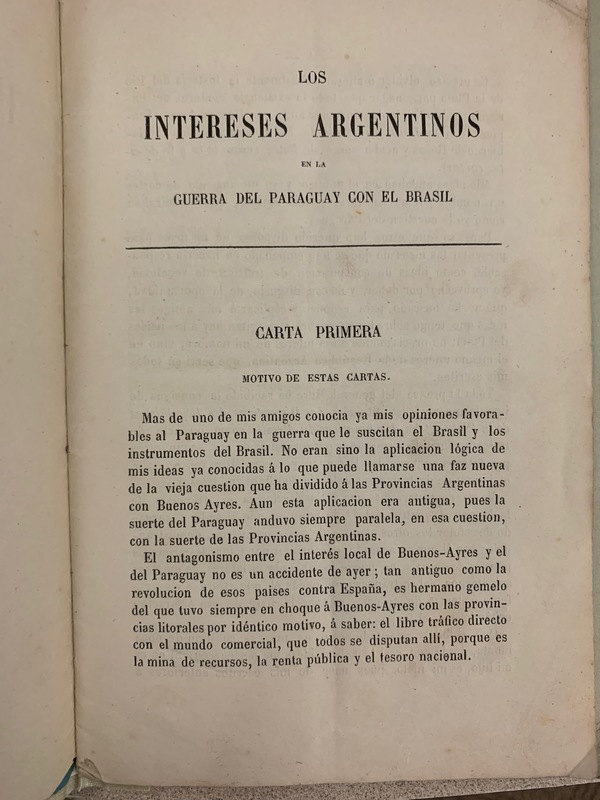Argentine Interests in the War of the Triple Alliance
The War of the Triple Alliance (1864-1970) was a unique event that brought together the foreign interests of Argentina, Brazil, and Uruguay in an attempt to take down Paraguayan dictator, Francisco Solano Lopez. On the surface, the initial provocation for the war came from the Paraguayan government’s attempt to take Uruguayan land owned by Brazilian ranchers. Brazil reacted swiftly to protect their interests, and Argentine forces joined the war under President Mitre’s direction in 1865 after Paraguayan troops crossed through Argentine territory on their way to Uruguay.
Juan Bautista Alberdi was an important figure in the construction of the 1853 Argentine constitution and was heavily involved in disputes between Buenos Aires and the Argentine provinces. He was exiled in 1847 but was brought back into the fold in 1853 as an ambassador to Chile. Afterwards, he finally settled in Paris, France, where he released this pamphlet of personal letters suggesting ulterior national diplomatic motives for Argentina’s involvement in the War of the Triple Alliance. Alberdi was a strong proponent for supporting the Argentine provinces in their ongoing political battle with the consolidated powers of Buenos Aires, which he draws from in his letters opposing the war. He looks at Paraguay in South America as an analogous entity to the provinces of Argentina who struggle for freedom and trade with the outside world without subjugation or dependence on Buenos Aires. The country was so divided that it did not even officially receive its name “Argentina” until 1962. This internal divide is the great Argentine battle that still afflicts the country today.
Ultimately, Alberdi’s letters, written in Spanish for the Argentine reader, make the case that President Mitre’s involvement in the war was an attempt to stop Paraguayan provincial influences from spilling over the border, while uniting Argentine provinces with Buenos Aires under a common enemy. Alberdi views Mitre’s war, in his letters, as an attempt to stop Paraguayan resistance from influencing Argentine political discourse and re-inflaming provincial tensions.
Outlining the great Argentine battle between province and city, Alberdi’s letters prompt important questions about national identity and politics that still hold prevalence today. Can one disagree with one’s own country’s constitution without being a traitor? Are there clear comparisons between Paraguay’s position in South America with the Argentine provinces’ position in Argentina?
Alberdi’s letters in Los intereses Aargentinos en la Guerra del Paraguay con el Brasil : Cartas dirigidas a sus amigos y compatriotas tackle these questions and more.
—Nick Parker

